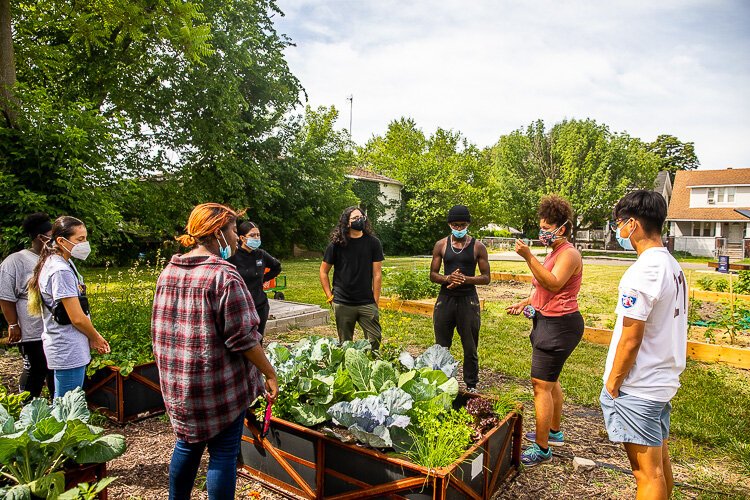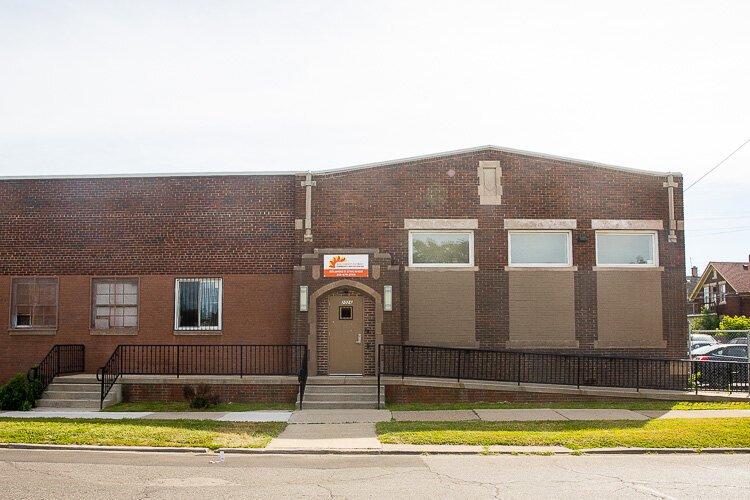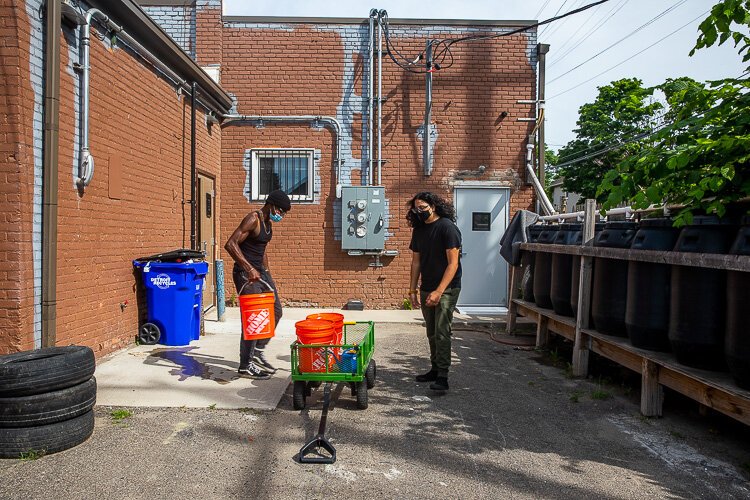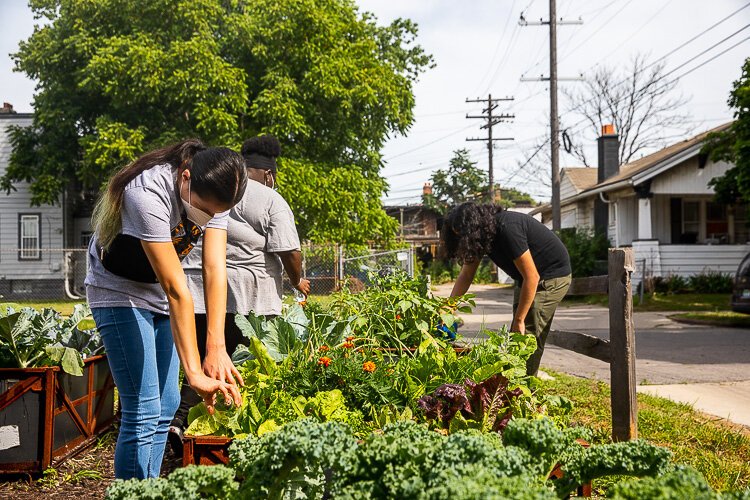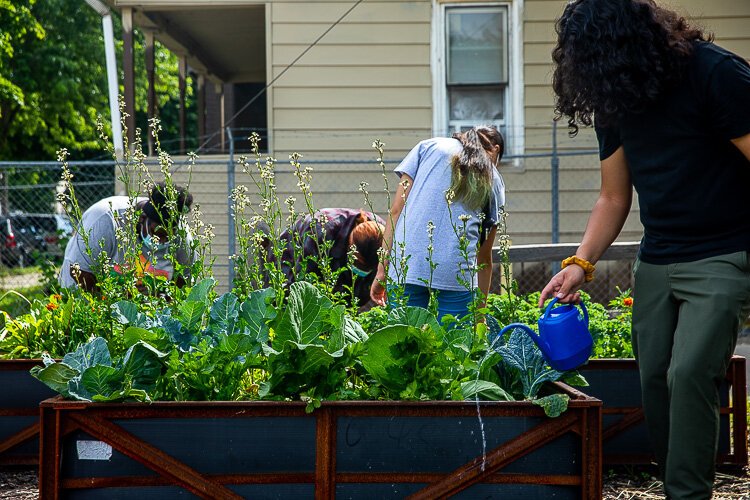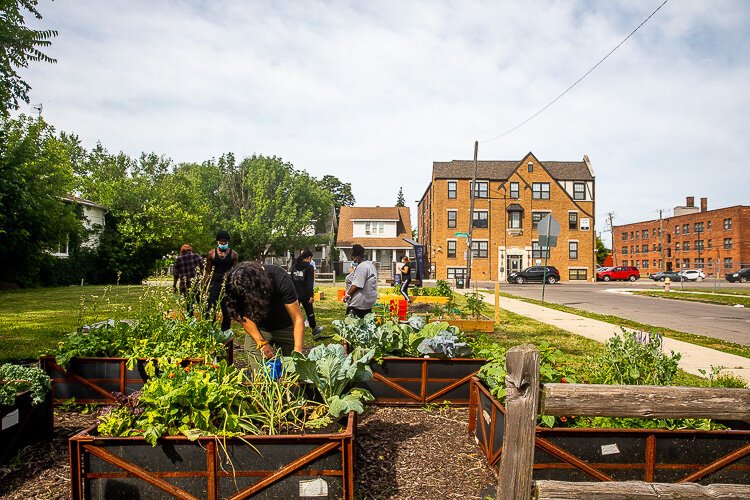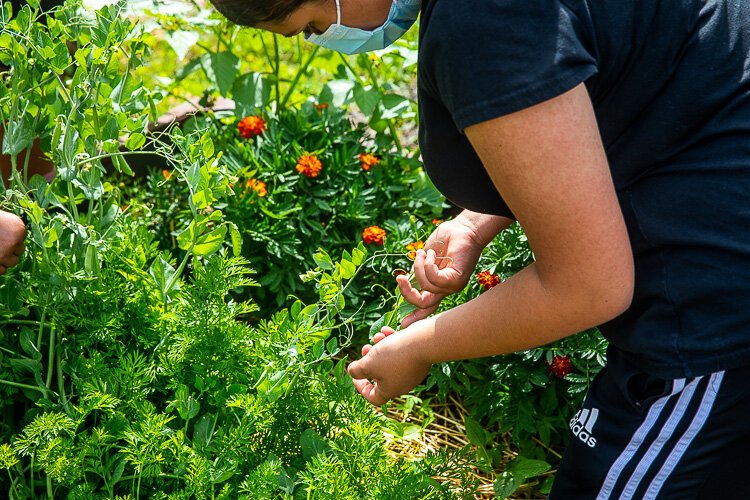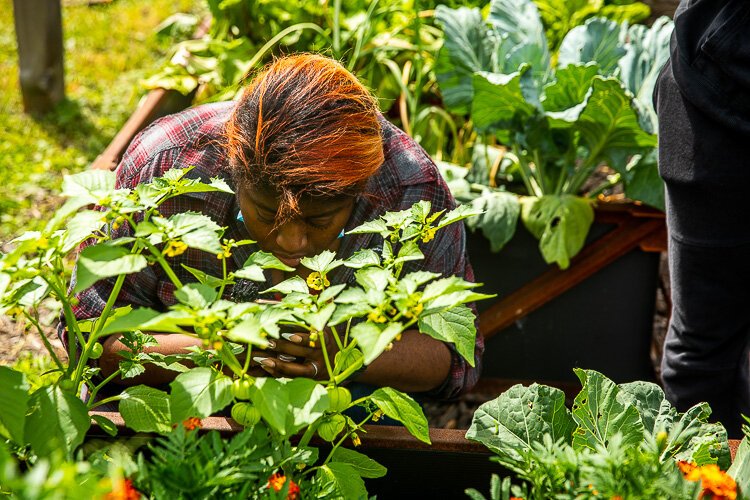Resilient Neighborhoods: This novel program is teaching SW Detroit youth garden-to-table food skills
UNI's Southwest Food Cultivators program is giving local teens an understanding of food that starts with a seed and ends on a plate.
Braian Mendoza, a 17-year Southwest Detroiter, has been spending a lot of time with dirt, sunshine, and vegetables this summer, thanks to a Facebook ad he clicked on last year.
The ad he clicked on was for a program called Southwest Food Cultivators. Sponsored by the Southwest Detroit nonprofit Urban Neighborhood Initiatives (UNI), the group is dedicated to helping local youth get hands-on experience with gardening and cooking.
Now in his second year in the program, Mendoza has become quite familiar with working in the soil. And while he’s helped cultivate a wide variety of crops — everything from herbs like cilantro to peppers and tomatillos — he’s particularly fond of working with some of the bigger plants in the garden.
“Right now, we’re growing watermelon and sunflowers,” says Mendoza. “[They are] something you don’t really see a lot in Detroit, so it’s very strange, but cool in a way.”
As for the program itself, Mendoza is clearly a fan of what it has to offer.
“I think it’s really fun,” he says. “It’s nice to see how things grow. Nature has its way of doing things.”
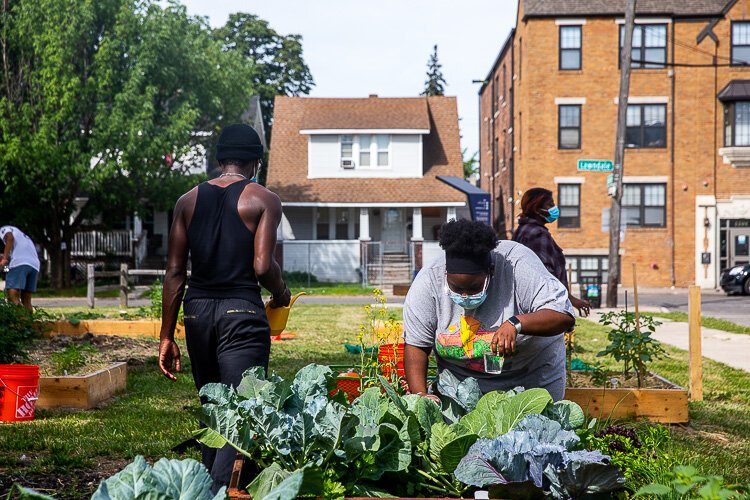
Cultivating youth programming
The Southwest Food Cultivators program is open to Southwest Detroit youth and is geared towards those between the ages of 16 and 19 years old. The program, which runs year-round, begins in February with planting starting in April of each year.
According to Danielle Dillard, the UNI employee who oversees the program, it’s focused on providing these teens with work experience while helping them to hone agricultural, culinary, and community-building skills.
“It’s a youth work readiness program essentially,” says Danielle Dillard, a UNI employee and the program’s coordinator. “The main foundation is really food. We help [them] to grow food and then to cook with that food. They get paid to do that,
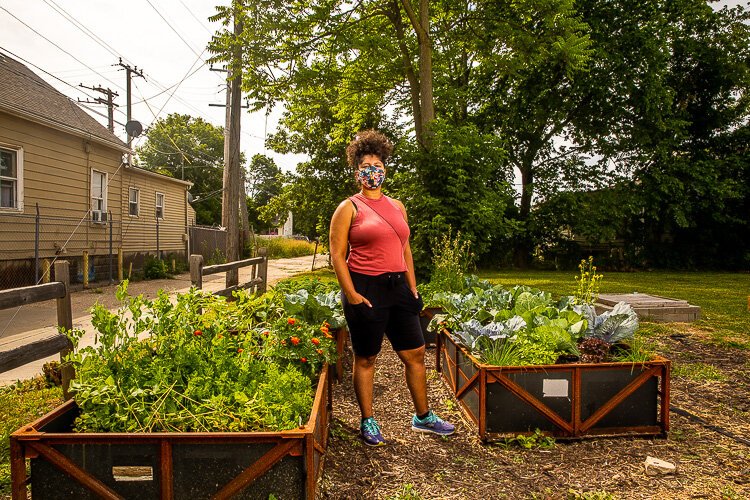
and it’s a mix of learning and doing.”
The project got off the ground last year as the result of conversations between the UNI and residents of the Springwells neighborhood about the nonprofit’s programming priorities. Through a combination of community meetings and canvassing, UNI learned that community members were interested in increasing their access to fresh foods. UNI also found that a lot of youth were also enthusiastic about working with food and wanted to learn more about cooking.
Dillard, who has a strong interest herself in both cooking and gardening, was chosen to lead the Southwest Food Cultivators and developed the program with the input and participation of its youthful participants.
The project is funded in part by the Community Foundation of Southeast Michigan, and the Michigan Department of Natural Resources. It is also part of the city’s Grow Detroit Young Talent program and receives support from Keep Growing Detroit, which helps provide seeds and transplants for the effort.
The garden, which is known as Viva La Garden, is located at the corner of Lawndale Street and Whitaker in Southwest Detroit, not far from UNI’s Lawndale Center. Built on raised beds, it’s roughly the size of a longhouse. The plants grown there include cold crops like basil, parsley, mustard, and collard greens, kale, scallions, green onions, beets, and turnips, as well as warm-season crops like squash, peppers, and tomatoes.
The lot is also home to a variety of flowers — marigolds, zinnias, tulips, and the sunflowers Mendoza mentioned — that help beautify the area and attract pollinators. There is no fencing around the community and local residents are encouraged to harvest and eat the crops found there.
Youth in the program work as a team, designing the garden itself and later planting and tending to the crops. As for the culinary aspect of Southwest Detroit Food Cultivators, participants get an opportunity to familiarize themselves with cooking equipment and learn about things like knife skills and food prep.
“They all come at different levels, depending on how much they cook at home,” says Dillard. “The goal is to get them oriented with cooking. And also learning to cook their own food.”
Cooking classes take place outdoors at different sites and indoors at UNI’s kitchen space. Participants have also cooked at Eastern Market’s cooking space. The youth cook for themselves and one another and even help to cater events. At the end of the program, each participant also walks away with a food handler’s certificate.
Mendoza is now a lead this year, which means he gets a pay bump and the additional responsibility of helping supervise newcomers to the program. In addition to learning more about food cultivation and cooking, he says
I’ve become more outgoing, more of a people person,” he says. “Now I’m more open people to and more interested in [finding out] where I can help out.”
Leonardo Enriques, 20, also worked in Southwest Food Cultivators last year and has come back as a lead. He enjoys both the growing and cooking aspects of the program.
“Honestly, it’s pretty fun,” he says. “The cooking workshops are very fun, but I think it’s also cool that we can take home the food that we’ve grown in the garden and actually cook it ourselves.”
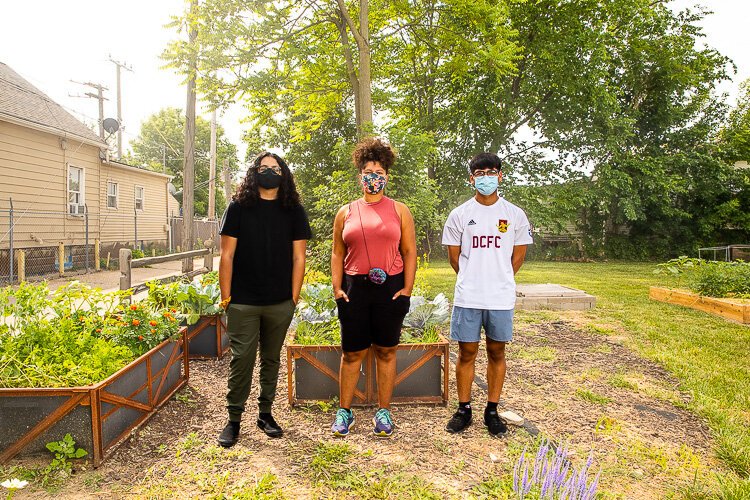
Looking toward the future
Right now there are 12 youth working in the Southwest Food Cultivators. UNI, however, expects to increase that number later this summer, when middle schoolers join the program. At the moment, youth in the program water the garden using buckets that are conveyed from about a block away on a wagon. That’s set to change this July, after the nonprofit installs a rainwater harvesting system that will make it easier for youth, and potentially neighborhood residents, to maintain the garden.
And that’s another benefit of the program. The community garden has provided a great opportunity for teens to interact with residents of the local neighborhood. That’s important for UNI because, in addition to teaching youth concrete skills about growing and preparing food, the nonprofit also wants to help teens cultivate social and organizational skills that will eventually help participants as they pursue their future careers.
“They’re getting work-based experience,” says Dillard. “We want to open up pathways for them in culinary, agriculture, and community work to set them on the path where they can do what they want to do.”
Enrollment for Southwest Food Cultivators is currently at capacity and won’t open up again until next February. Youth interested in participating should reach out to the program’s instagram page follow UNI on social media via Facebook or Instagram.
All photos by Dave Lewinski.
Resilient Neighborhoods is a reporting and engagement series that examines how Detroit residents and community development organizations are working together to strengthen local neighborhoods. It’s made possible with funding from the Kresge Foundation.
